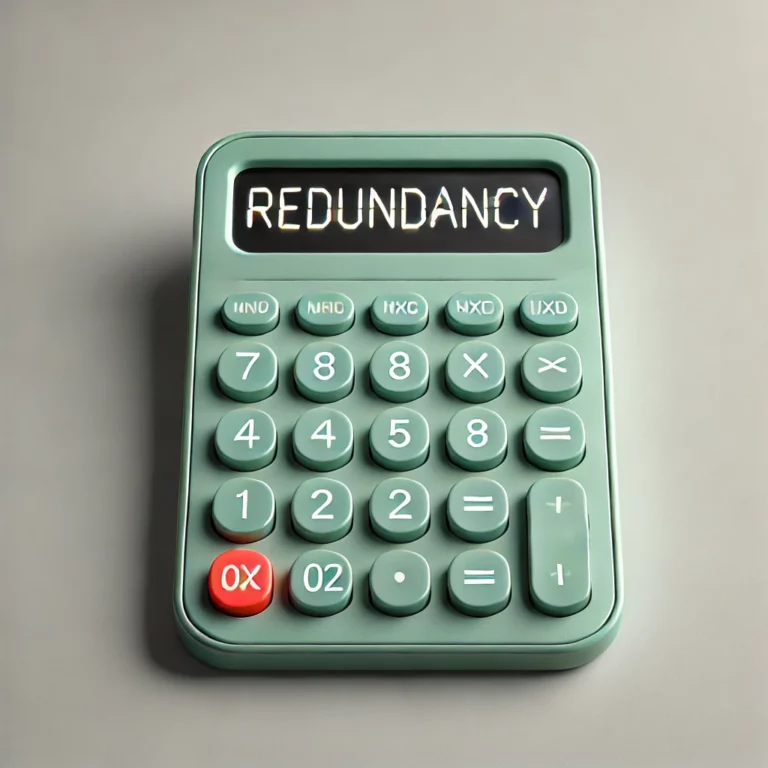I’m an employment solicitor and I’ve been advising employees and employers for over 20 years on employment law and settlement agreements. Many settlement agreements are long and contain a lot of technical legal jargon. The aim of this guide, and settlementagreement.co.uk generally, is to cut through the lawyer-speak and explain what everything means in plain English. I hope you find it helpful.
Contents
In this settlement agreement guide for 2025 you’ll learn:
1. The key points about settlement agreements.
2. How to make and respond to a settlement offer.
3. The art of settlement agreement negotiations.
4. To identify key clauses, what they mean and which ones to amend.
5. Money and benefits and their tax treatment.
6. The difference between settlement agreements and COT3 agreements.
7. Redundancy settlement agreements and why employers use them.
8. How settlement agreements are used in disciplinary, grievance, sickness, performance or capability situations.
9. Settlement agreement: good or bad idea?
1. Key points
Having a conversation with a solicitor about a long legal document is not most people’s idea of fun. However, the law requires an employee to do just that; to have legal advice from a qualified legal adviser, e.g. a solicitor, on the settlement agreement terms and its effect. I try to make the advice process engaging and positive and help my clients to focus on the key parts of the agreement that are most important to their situation.
Why signing a settlement agreement is a big decision
If you sign a settlement agreement you’re effectively signing away your employment rights and claims. You won’t be able to bring claims against your employer, and the only monies and benefits you’ll be entitled will be set out in the settlement agreement.
You’ll probably be required to keep everything confidential, return all company property and not badmouth your employer or be critical, subject to a few permitted disclosures, like reporting a crime to the police or whistleblowing.
You may also be required to promise you’ve not done anything in the past that would have entitled your employer to dismiss you – had they known about it. Other clauses will set out the payments and any benefits you’ll receive, which payments will be taxed, and that you’re responsible for any extra tax.
Essentially, these are the main and common parts to a settlement agreement. I cover all of this and more more detail below, and you can jump down the settlement agreement rabbit hole by following links in the article.
Quick Fire FAQs
- What is a Settlement Agreement? A settlement agreement settles employment claims an employee may have. This will mean the employee will not be able to bring employment tribunal and legal claims against their employer.
- What is a Compromise Agreement? The old name for settlement agreements – the name changed in 2013. But old habits die hard and you still hear people calling them compromise agreements!
- Is it confidential? Pretty much. Settlement agreements usually contain some hefty clauses requiring the employee to keep the existence, terms and circumstances leading up to the settlement agreement confidential. There are some permitted disclosures we cover these in more detail in our guide on confidentiality.
- Why do employers use settlement agreements? To ensure employees don’t bring employment claims and to move quickly to an employee exit. Whether its a redundancy, performance issue or sickness, employers sometime prefer to offer more money in exchange for peace of mind the employee won’t bring a claim.
- Do I need a solicitor? It’s a legal requirement for the employee to have independent legal advice on a settlement agreement, otherwise the agreement cannot lawfully prevent the employee bringing statutory employment claims.
- Who pays for the cost of a solicitor? Because its a legal requirement for the employee to have their own legal advice, employers will agree to make a payment to cover the cost of a solicitor advising the employee on the settlement agreement.
- How much does legal advice cost? Employers tend to offer between £250 and £750 ex VAT towards the cost of the employee getting independent legal advice from a solicitor on the settlement agreement. My practice is to cap fees at the employer’s contribution to legal fees when an employee just wants advice on the settlement agreement terms and its effect.
- Who does the solicitor invoice for the advice I get? After the settlement agreement is signed-off and completed your solicitor will send their invoice to your employer for the agreed contribution to legal advice fees. The invoice should be marked payable by your employer.
- Is a settlement agreement payment agreement tax-free? The tax position depends on the nature of the payments made under the settlement agreement. If you’ve fully worked your notice entitlement or been paid in lieu of your full notice entitlement, usually the first £30,000 of a termination payment can be paid tax-free. I cover tax in more detail later section 5 of this guide.
- What do I do if I’m happy with the financial term and want to sign? If the settlement agreement is ready to sign you can go for our fast solicitor advice service. If you have the agreement we can move pretty quickly, a day or so to make an appointment, review, advise on a call (solicitor and client) and sign-off.
What is the effect of a entering into a Settlement Agreement? By entering into a valid Settlement Agreement an employee agrees to give up certain legal rights usually in return for a severance payment or package. The main effect of the agreement is you will not be able to bring employment claims in the employment tribunal or court that you have agreed not to bring, such as unfair dismissal, unlawful discrimination, or breach of contract claims.
2. Settlement offers
How to make an offer
Employers or employees can make a settlement agreement offer if they wish.
While there are important tactical and risk-based considerations, an employee may decide the best thing for everyone is if they part company and agree a fair financial exit package, all wrapped up in a settlement agreement.
If the settlement offer does not result in a binding settlement, the offer and settlement discusisons will usually (but not always) be inadmissible in any claim, by reason of it being ‘without prejudice’ or a protected conversation.
What does without prejudice and subject to contract mean?
Employers tend to label the meeting or offer letter (in which they make the settlement agreement offer) as without prejudice or a protected conversation or an ‘ offer made pursuant to section 111A of the Employment Rights Act 1996‘.
This means the employer is saying they think the offer and associated settlement discussions are off the record and you can’t use them against the employer. Put another way, the offer is not ‘open’ and it’s not admissible in any employment tribunal claim or court proceedings.
Whether any offer or associated discussions really are, legally speaking, without prejudice isn’t actually determined by the use of a label in a letter or at the start of a discussion but a set of rules developed from past legal cases.
Arguments about whether a communication is without prejudice can become a distraction from the main goal of trying to reach a concluded settlement agreement. Ultimately, if you’re happy with the offer and you sign the settlement agreement, whether the discussions were without prejudice will be academic. However, if an employer has clearly acted improperly or dishonestly during the settlement discussions, an employee may seek to gain some leverage in negotiations by pointing that out and arguing should the matters not be resolved the employee will be able to bring the employer’s conduct to the attention of the employment Judge in an employment tribunal claim.
We can do this the easy way or the hard way.
Where the employer is using the settlement agreement as a way of avoiding or cutting short an internal employment process, like a redundancy consultation, or performance improvement plan, sickness procedure, disciplinary, or grievance procedure, an employer may want to spell out what might happen, if the employee rejects the offer, in the settlement discussions.
For example, if the employer is concerned about the employees performance, the employer might point out if the offer is not accepted it will start a performance improvement plan, or a formal capability hearing, and that one possible outcome from that process may be dismissal.
The same approach might happen in a disciplinary situation, where an employee is facing a disciplinary hearing that could result in dismissal, but the employer decides to make the employee a settlement offer. The offer may give the employee a chance to avoid a dismissal on their record, provide a factual reference, and a payment, although that would decide on the seriousness of the alleged disciplinary offence, and the strength of the evidence.
By doing this, the employer is setting out two clear pathways for the employee to consider, one entails a speedy outcome under a settlement agreement with a known settlement figure and relatively little stress or delay. The other sets out what might appear to be a stressful, difficult procedure for the employee to endure, and then possibly an expensive, time-consuming and drawn out legal dispute if the employee is subsequently dismissed, with the risk the employee may not beat the settlement offer in an employment tribunal, or may even come out will nothing if they lose.
Simply pointing out the realities of the situation and the potential outcomes is actually helpful to frame the decision for the employee, even if there may be some hard truths in that message. However, an employer should not act improperly, threaten, intimidate, mislead or exaggerate the issues, otherwise the employer risks undermining their credibility in negotiations, and emboldening the employee to argue the communication is open and admissible.
Tip: whether you’re an employee or employer, don’t say anything in a without prejudice conversation that you would not be prepared to justify if it was brought out in a tribunal or court claim later. Act professionally at all times and even if its without prejudice, make a note of the discussion in case its needed later.
3. Negotiations and tactics
A bird in the hand is worth two in the bush
An employee might ask why is my employer making me an offer, if they really think they have legitimate basis to dismiss, and then jump to the conclusion the offer must be a sign of weakness. That is not necessarily the case, and some employers may make an offer because they are risk adverse, or generous, or generally don’t want to go to tribunal. But to presume the employer will increase the offer or you will get more in tribunal may be dangerous and could lead to regret later on. The best approach is to seek legal advice to properly assess the situation and establish if the offer is reasonable.
From an employer’s perspective, a settlement offer could become counterproductive if the employee is emboldened into thinking it means they must have a strong case.
A well timed and pitched offer by an employer often means it will be better for the employee take a smaller secured advantage (i.e. settlement) than the possibility of a bigger one at employment tribunal.
Is the settlement offer fair and should I accept?
That depends on the offer, the strength of any claims, how long you’ve been employed and factors personal to you. The next section below on negotiations should be helpful. If you are not sure about the financial offer terms you can use a settlement agreement calculator to help assess how much you should get.
While some people might operate under the impression you should never accept the first offer, that is not always the case. And some employers will make clear if the employee doesn’t want to accept the offer, they don’t have to and the other pathway will be followed (see easy way, hard way above).
Negotiating a Settlement Agreement
I’m not happy with the financial terms
Some employees are not satisfied with the financial deal and/or the terms of the agreement and will instruct their solicitor to conduct settlement negotiations on one or both fronts.
The ability to negotiate will usually depend on the circumstances and strength of the individual’s case or the value proposition they can make to the employer that upping the offer represents a reasonable outcome for the employer versus the alternative.
The stronger the legal basis for a claim, the more likely it is that employers will be receptive to negotiations to increase the compensation and amend terms in the employee’s favour.
Other factors may come into play. Understanding the employer’s objectives, and any time pressures might help lead to helpful leverage. For example, if the employer is trying to sell its business, its aim may be to settle quickly to avoid having to disclose it in the sale process.
Alternatively, leaning on relationships, loyal service and conveying that the extent of your potential loss of earnings, based on the time it may take to secure new employment, can sometimes help.
4. Clauses and amendments
Typically an employer will have a template settlement agreement that their employment lawyers has drafted, which HR then use each time they they want to offer an employee a settlement agreement, or they ask their lawyers to draft it for them, using the lawyer’s template.
As the whole point of a settlement agreement is to make sure any claims or issues for the employer go away, the result is often a long-winded document, covering every (or most) conceivable risk or issue.
This approach means settlement agreements are not short or easy reading.
What terms might a Settlement Agreement include?
The terms included in a Settlement Agreement will vary depending on the circumstances of the particular case and employer’s approach to settlement agreements. However, it is common for Settlement Agreements to contain clauses dealing with the following:
- The date employment terminated or will terminate.
- List of claims settled – usually in a schedule at the end of the agreement.
- List of claims not settled – usually claims to enforce the terms, for example to sue if the employee does not pay the settlement monies, claims for personal injuries the employee did not know about, and in relation to accrued pension rights.
- Settlement package including when payment will be made and by what method.
- Payment of wages, holiday pay, any commission, bonus, pension contributions, and what happens to shares, share options, and incentive plans.
- The period you will retain any benefits, such as a company car, and when and how these must be returned.
- the understanding on the tax position.
- Tax indemnity from the employee – which means any extra tax and liabilities will be the employee’s responsibility.
- Reminder of any restrictive covenants or confidentiality obligations in the employment contract or new ones inserted into the settlement agreement.
- Confidentiality about the fact and content of the settlement agreement, and the circumstances of the agreement although usually disclosure to immediate family, professional or medical advisers is permitted.
- Obligations on the employee only (or sometimes both parties) not to make or publish any derogatory comments.
- Permitted disclosures – for whistleblowing, reporting misconduct or regulatory breach to a regulator, reporting or assisting the police in relation to a suspected criminal matter.
- An agreed reference.
- Any announcements to be made to colleagues and/or externally, with agreed wording contained in a schedule to the settlement agreement.
- Repayment provisions for breach by the employee of the settlement agreement
- Employer contribution to the cost of obtaining legal advice on the terms of the agreement
- Arrangements on termination, e.g. handover, returning property, passwords etc.
- Entire agreement clause – confirming all prior discussions, or agreements are superseded by the settlement agreement. In effect, anything not covered by the settlement agreement agreement will not be enforceable.
Changes to the Settlement Agreement wording
You may want to make changes to the Settlement Agreement wording to protect you. For example:
- Adding a clause to require your employer to provide a reasonable job reference to a new employer;
- making sure all the payments, monies and benefits you are entitled to are covered (accrued salary, accrued holidays, bonuses, commission payments, shares, SAYE, private health cover, company car or car allowance). This is important because usually a settlement agreement will be drafted to be the entire agreement, meaning any payments or benefits not covered in the agreement will be lost;
- an agreed internal or external announcement to colleagues and customers;
- changes to the clauses dealing with tax (known as a tax indemnity) to limit your exposure;
- amending or removing post-termination restrictions that may make it difficult for you secure new work;
- deleting clauses that are unreasonable / to remove or minimize risk.
I’m not happy with the wording
You might not be in the forgiving mood if your employer misspells your name or home address in the agreement, and fault finding can be tempting. Equally, if the settlement agreement has arisen from a situation where your have lost trust in your employer, there can be a greater focus of seeing the worst in every nook and cranny of the settlement agreement.
Be Pragmatic
With your solicitor you should consider whether there are any amendments that are necessary (i.e. a deal breakers), or advantageous or desirable but not critical.
Pragmatism is said to be the enemy of the ideal. We can moan about a badly drafted settlement agreement, or a one-sided or imperfect one. However, provided the agreement wording is sufficiently clear – and the financial package is reasonable – being pragmatic about some of the wording is sometimes the sensible approach, and it avoids a lot of time and delay and cost of arguing about wording or asking for amendments.
Categorising the importance of an amendment can help: (1) so important you would not sign unless it made amended (2) important but not a deal breaker (3) a nice to have but not that important (4) an amendment would remove a risk but the chance of that risk materialising is low and/or even if the risk materialises you are not that concerned about the impact on you. Once you categorise risk in this way, it becomes easier to make decisions about whether to pragmatically live with the wording, or push hard for it to change.
Putting the offending clause(s) into one of these groups may also help to get a sense of importance:
- Unlawful – if the agreement contains an unlawful or unenforceable clause, seek to remove it.
- Unreasonable – seek to remove or amend unreasonable clauses, if you are not prepared to tolerate the associated risks.
- Missing clauses – suggest new wording to cover anything is missing, making it clear why its important, necessary or reasonable to include.
- Unclear / vague – to the point it creates a material risk you might lose something.
No reciprocity – a one sided agreement, requiring an employee not to speak badly of the employer but with no similar obligation on the employer, is a common gripe for some employees.
- Typographical error – should be an easy amendment that can be agreed.
5. Money, benefits and tax
Show me the money
The settlement agreement should specify the payments your employer will make to you, when, how and what they are for.
Check the numbers / maths, as employers can make mistakes. And check your employment contract and benefits to ensure there’s nothing missing from the settlement agreement.
Tax on Settlement Agreements
The table below summarises the general position for the common payments received under a settlement agreement.
| Wages, bonus, commission | subject to usual deductions for income tax and national insurance (‘Taxable’) |
| holiday pay (accrued or paid in lieu) | Taxable |
| PILON (payment in lieu of notice) | Taxable |
| Post-Employment Notice Pay | Taxable |
| Statutory redundancy pay | Not Taxable (falls in the first £30,000 cap*) |
| Termination/Severance Payment | Not Taxable (if it falls in the first £30,000 cap and no part is Post-Employment* Balance over the £30,000 tax free allowance is Taxable). |
| Contribution to legal fees for advice on a settlement agreement | Not taxable (where the payment is made directly to the employee’s solicitors and meets conditions*). |
| Outplacement costs | Not taxable (subject to meeting certain conditions*) |
* Note there is only one £30,000 tax-free allowance. This means you add up the total value of the termination payment and any redundancy payment, and the balance over £30,000 will be subject to income tax and employee national insurance deductions. For more detailed information on tax relation the settlement agreements, read our tax guide.
6. Types of agreement
There are three types of settlement agreement that may be used by employers.
Statutory settlement agreement – this guide is focussed on this type of settlement agreements. It can prevent an employee from brining contractual claims and statutory claims, like unfair dismissal or discrimination.
Contractual settlement agreements – can prevent an employee from bringing contractual claims but not statutory claims.
ACAS COT3 – can settle both statutory and contractual claims but requires ACAS to conciliate and record a binding settlement. Where an Acas conciliation officer assists in the negotiation of the settlement of an employment tribunal claim (or potential claim), a COT3 agreement is used to record the terms of settlement. A COT3 agreement is a much simpler straightforward agreement that does not have to adhere to the formalities of a settlement agreement because it is concluded with the assistance of an Acas conciliation officer.
Requirements of a legally binding statutory settlement agreement
To protect employees who may be unaware of their legal rights, the law states that a statutory settlement agreement will not prevent an employee bringing a statutory employment claim, unless it meets certain minimum requirements:
- The agreement must be in writing.
- The agreement must relate to ‘particular proceedings’ i.e. particular complaints that the employee may have.
- The employee must identify a relevant independent adviser from whom the employee has received advice as to the terms and effect of the proposed agreement and in particular its effect on the employee’s ability to pursue their rights before an employment tribunal.
- The adviser must be covered by professional indemnity insurance.
- The agreement must state that the legal conditions regulating settlement agreements are satisfied.
Invalid Settlement
If the settlement agreement does not comply with these minimum legal requirements, it will not be valid and an employee will still be able pursue a statutory claims in the employment tribunal against their employer, although he/she may have to repay any monies received, or they may be deducted from any compensation the employee is awarded.
7. Redundancy Settlement Agreements
It is fairly common for employers that are paying enhanced redundancy packages or operating a voluntary redundancy scheme, to require the employee to sign a settlement agreement in exchange for the enhancement.
Fundamentally, a redundancy settlement agreement simply describes a settlement agreement that is used where the reason for the employee’s employment ending is redundancy.
Are there any claims that cannot be settled by a Settlement Agreement?
Not all claims can be settled by means of a Settlement Agreement, for example the right to statutory maternity, paternity and adoption pay and claims under the Agency Workers Regulations 2010. It is also usual for an agreement not to compromise an employee’s accrued pension rights. There is also usually a clause dealing with personal injury claims stating either that the agreement does not affect any personal injury claim that the employee may have or a clause signing away the employee’s right to pursue claims for injuries of which he/she is already aware.
8. Case Studies
In what situations are Settlement Agreements used?
Settlement Agreements are used in many employment situations, including:
Redundancy:
Settlement Agreements are often used in redundancy scenarios, where the employer offers to pay the employee more than the basic statutory redundancy pay entitlement. In exchange for paying more, the employer may require the employee to sign a settlement agreement.
Disciplinary:
The employer may not be happy with the employee’s standard of work. Rather than go through a formal performance improvement plan / procedure, the employer may decide to offer the employee an alternative to leave earlier in the procedure and receive a settlement payment under a settlement agreement.
Sickness / Incapability
If an employee is not capable of work because of illness or a lack of skill or experience, one option may be to agree to the employee leaving under a settlement agreement. Sometimes, both parties would prefer to agree an earlier amicable settlement rather than go through a long drawn out capability procedure that might end in dismissal.
Work relationship breakdown
Sometime the work relationship breaks down between the employer and employee, or the employee and colleagues. The parties may prefer to agree an amicable parting, where the employee receives a severance / termination payment.
The employee may have grievances and potential claims against the employer for the way she/he has been treated at work. Rather than bring employment claims, an agreement may be reached and recorded in a settlement agreement.
Employee Grievance
When employees are offered a Settlement Agreement, they should give careful consideration to what they want to achieve by signing such an agreement.
9. Settlement agreement – good or bad idea?
This is an impossible question to answer because so much depends on your offer, your objectives, and attitude to risk. If you’d like me to advise on your settlement agreement we can work this out. All that said, the vast majority of employees that receive an offer do end up signing with or without amendments from the original terms offered.
10. About the author

John Hassells is the founder and Managing Director of Deva Law, a specialist employment law firm. John is a fully qualified solicitor with over 20 years experience advising employees and employers on employment law matters, employment disputes and settlement agreements. He is a member of the Employment Lawyers Association, regularly delivers employment law training and provides media comment on employment law developments.
Legal Disclaimer
The contents of this article are intended to be be for general information purposes only and do not amount to (nor are they intended to be) legal advice or a complete or authoritative statement of the law nor should they be treated as such. No warranty or promise is given, express or implied, as to accuracy of the information on this page and no liability is accepted for any error or omission. You should instruct a specialist solicitor to advise you on your particular situation and not act or rely on the information on this page.





















 Unsuccessful candidates have no legal right to feedback. So if you never hear how you got on, you can’t legally insist on a reply.
Unsuccessful candidates have no legal right to feedback. So if you never hear how you got on, you can’t legally insist on a reply.
 Once you understand the reason/s why you’re being offered a settlement agreement in return for losing your job, you can understand any leverage you might have and your bargaining position.
Once you understand the reason/s why you’re being offered a settlement agreement in return for losing your job, you can understand any leverage you might have and your bargaining position. An obvious but very important question. You may not have a choice about who you are talking to about your settlement agreement deal.
An obvious but very important question. You may not have a choice about who you are talking to about your settlement agreement deal. Can I remove or reduce my restrictive covenants?
Can I remove or reduce my restrictive covenants?